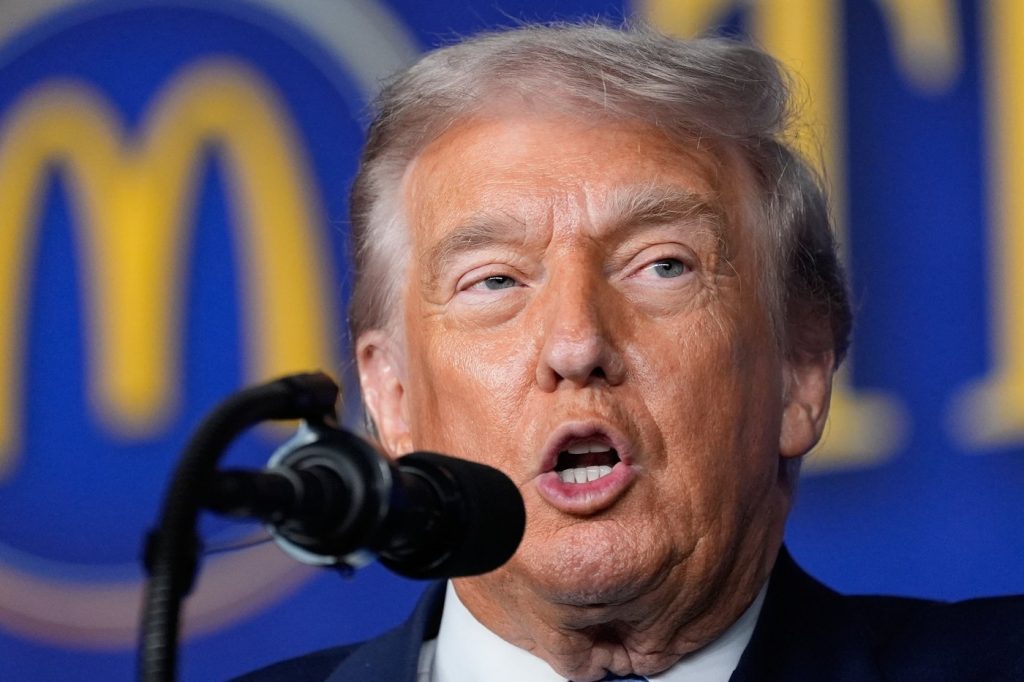WASHINGTON (AP) – President Donald Trump has renewed his focus on dismantling former President Barack Obama’s signature health care legislation, the Affordable Care Act (ACA), positioning himself for a political confrontation as the 2024 elections approach. Echoing his earlier attempts to overturn the law during his first term, Trump faces significant challenges in addressing voters' pressing concerns over escalating living costs, particularly health care expenses.
During his presidency, Trump's efforts to repeal and replace the ACA resulted in notable failures, contributing to Republican losses in the 2018 elections. Now, as he approaches the 2024 campaign, he appears to be moderating his previous ambitions but is still grappling with how to alleviate voter anxiety regarding affordability. This situation is exacerbated by an impending deadline for the extension of expiring subsidies intended to assist individuals in paying for their “Obamacare” premiums. The extension of these subsidies is critical, as failure to act could impact up to 24 million individuals covered under ACA exchanges.
Experts, like Jonathan Oberlander from the University of North Carolina at Chapel Hill, have pointed out that it is detrimental to address affordability concerns by further increasing health care costs. Consumers already facing premium hikes have been alerted that without an extension of subsidies by January 1, their financial burdens will significantly increase. Trump has publicly stated he will not endorse these extensions, placing the onus on Congress to find an alternative solution.
In the lead-up to the recent government shutdown, Senate Republicans, including Rick Scott and Bill Cassidy, have proposed separate initiatives aimed at creating health savings accounts, aligning with Trump’s preference for direct financial assistance to individuals over insurance companies. House Republicans are also developing legislation intended to lower family costs, as emphasized by Majority Leader Steve Scalise. Contrarily, House Democratic leader Hakeem Jeffries dismissed Trump's proposals as unrealistic, asserting that tax breaks already exist for insurance purchasers.
The ongoing political tussle over health care reflects deeper partisan divides. Many Republican lawmakers are expressing openness to extending the ACA subsidies, albeit with stipulations like new income eligibility thresholds. Tight intra-party negotiations and the inclusion of industry insights are evident as the White House's Domestic Policy Council communicates with lawmakers and stakeholders on potential solutions to health care costs.
Trump has indicated his desire to bring significant changes to health care, labeling past ACA efforts a “disaster.” During a recent interview, he suggested that any future reforms should be titled “Trumpcare,” emphasizing a shift away from the existing framework. There is a realization among Republicans, as articulated by political analysts such as Tevi Troy of the Ronald Reagan Institute, that the long-standing issues concerning health care affordability need to be addressed. However, bipartisan collaboration will be essential for any proposed measures to gain traction in Congress.
Oberlander further observed that the protracted conflict over the ACA is fueled not only by the act’s inherent challenges but also by the overarching hyperpartisan nature of contemporary politics. He drew a comparison to Medicare, which initially confronted high levels of opposition but later garnered bipartisan support. He noted that the political landscape has transformed since Trump's failed repeal attempts in 2017; there are now significantly more Americans relying on ACA coverage, and key provisions, like protections for individuals with preexisting conditions, remain widely popular among the electorate.
In summary, while Trump’s renewed focus on health care reform seeks to capture a critical electoral issue, significant hurdles remain, including the need for viable proposals that can navigate the complexities of both public sentiment and the dynamics within Congress. The unfolding debate over health care subsidies will likely have lasting implications as the political landscape evolves towards the 2026 elections.











